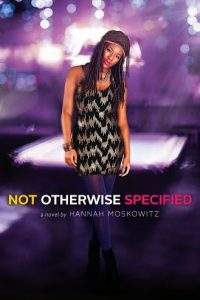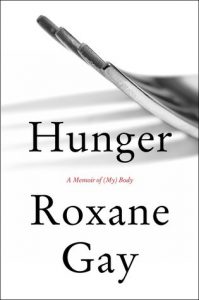Buy this from Bookshop.org to support local bookstores and the Lesbrary!
Etta Sinclair is a bisexual teenager living with an eating disorder in the middle of Nebraska. She is also Black, comes from a high-income family, attends a private school and is a former ballerina. Everything about her makes her exist outside the boundaries set forth by society. Even within the lesbian community in their small town she’s on the outs for “not being queer enough.”
This is a coming-of-age story in which the main character, Etta, struggles with defining herself and embracing every aspect of her identity because she doesn’t fit into any neat boxes. Even her eating disorder is medically labeled “not otherwise specified” (where the book title comes from), because her BMI doesn’t qualify her as anorexic.
As she tries to keep her head down and make herself smaller in every way possible, her former friend group bullies her mercilessly for having dated a guy. The story delves deep into biphobia coming from all sides, from Etta’s mother’s discomfort to even Etta’s own internalized biphobia at times. Throughout the story, there are so many times that Etta is told she is too much or not enough in some way. Her mother encourages her to relax her hair instead of wearing braids so that she looks “less urban.” She quit ballet because the instructor had told her to lose weight, threatening her mental health and exacerbating her eating disorder.
But she starts to come more into her own when she makes friends with another girl in her recovery group, Bianca, who introduces her to her brother James and their friend Mason. Together, they practice for auditions for a musical theater program, reigniting Etta’s passion for ballet. Etta evolves from a sarcastic teen who uses humor as a defense mechanism to a genuinely enthusiastic individual who no longer needs to please everyone around her. She becomes comfortable with herself and, by the end, loses a lot of shame around taking up space.
Etta is the kind of character that could have been annoying by being overly sarcastic and thinking she knows everything. But Moskowitz adds nuance and depth by including Etta’s inner monologues that reveal her insecurities and true joy when trying to seem cool outside. It makes her feel like a real person that we can all relate to on some level.
The biggest issue, in my opinion, was the ending. It felt so abrupt and almost seemed to end mid-thought. The sentence it ends on is complete, but from how fast Etta’s thoughts move throughout the whole novel, it feels like it came to a screeching halt at the end. Other than that, it’s an overall heartfelt story that makes the reader feel joy, sorrow, frustration and hope.
Content warnings: d-slur, eating disorder, anorexia, binge eating, biphobia (including from other queer people), and bullying



